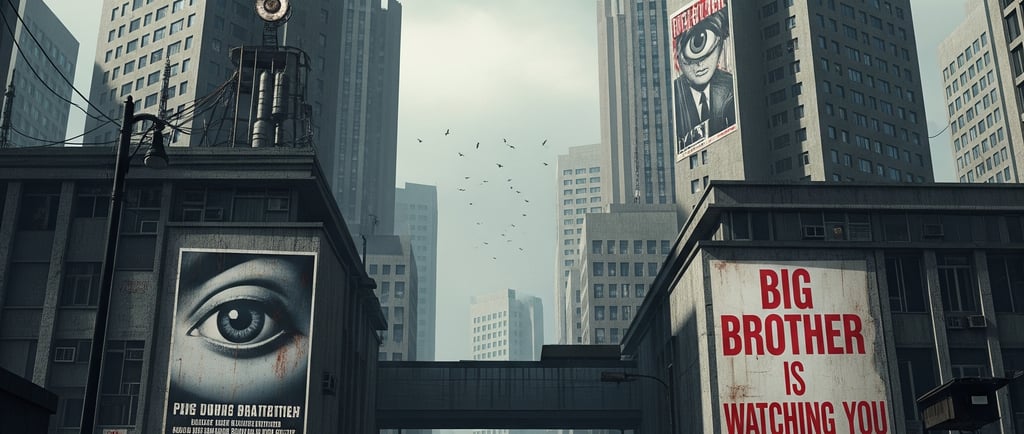Welcome to 2025. It's More Orwellian Than 1984 Ever Was.
As we step deeper into the year 2025, the chilling themes of George Orwell’s 1984 feel less like fiction and more like a reflection of our current reality. What Orwell envisioned as a dystopian future dominated by invasive surveillance, thought control, and propaganda is now unfolding in ways more pervasive and complex than his imagination could have captured. Here’s why 2025 feels more Orwellian than 1984 ever was—and why that matters.
NON-STOIC PHILOSOPHIES
8/10/20252 min read


The Rise of Digital Big Brother
In 1984, Orwell introduced the concept of the “telescreen,” a device that watched citizens constantly. Today, our smartphones, smart speakers, CCTV cameras, and countless connected devices play a similar role. These gadgets collect endless amounts of data on personal habits, movements, conversations, and even emotions. Unlike the overt surveillance in Orwell’s novel, much of today’s monitoring is subtle and often consensual—part of our daily interaction with technology we welcome into our lives.
The New Thought Police: Algorithms and Moderators
Orwell’s Thought Police had the terrifying job of punishing unorthodox thoughts. In 2025, algorithms and human moderators on social media platforms act as gatekeepers, deciding which content stays visible and which voices are silenced or de-platformed. While originally intended to curb misinformation or hate speech, this power influences political opinions, cultural dialogue, and personal beliefs, arguably shaping “acceptable” discourse in profound ways.
Manipulation of Truth and Reality
The Ministry of Truth in 1984 rewrote history to fit the Party’s narrative. Today, misinformation, fake news, and curated content flood our news feeds. State actors and private entities alike use these tools to shape public perception. Terms like “alternative facts” and “post-truth” culture reflect how truth becomes malleable when filtered through propaganda and corporate interests.
The Social Credit System and Behavioral Control
Some modern regimes employ systems resembling Orwell’s surveillance models but with a technological twist. Social credit systems measure individuals’ behaviors and reward or punish accordingly, influencing everything from travel freedom to employment opportunities. Such mechanisms raise profound ethical questions about autonomy, privacy, and the limits of governmental reach.
Voluntary Surveillance and the Illusion of Privacy
Unlike the enforced surveillance of 1984, much of today’s data collection happens with a degree of public participation. We willingly share personal information across platforms, often unaware of the extent or consequences. Every click, conversation, and purchase contributes to detailed profiles that can be exploited commercially or politically.
Why 2025 Feels Worse Than 1984
While Orwell depicted a monolithic authoritarian regime, today’s surveillance is diffuse—spread across governments, corporations, and even peers. The complexity makes it harder to detect and resist. Additionally, the motivations behind modern surveillance—profit, advertising, social manipulation—add layers not imagined in Orwell’s time.
Waste no more time arguing about what a good man should be. Be one - Marcus Aurelius
We suffer more often in imagination than in reality - Seneca
Wealth consists not in having great possessions, but in having few wants - Epictetus
